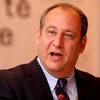With Donald Trump back in the White House, negotiations between Kosovo and Serbia will be renewed. Trump will revisit the controversial idea of territorial exchanges. This is a bad idea that was previously rejected by Kosovo society. Swapping territory would spark conflict in the region. It would distract from Serbia’s recognition of Kosovo, Euro-Atlantic recognition for both countries, and normalization of their bilateral relations.
The Biden administration neglected US-Kosovo relations, worsening the current impasse. Its half-hearted efforts failed to advance negotiations. Belgrade has been waiting for Trump to regain power so it could renew its proposal to swap territories.
The Trump administration is not an impartial observer. In May, Affinity Partners, an investment firm controlled by Jared Kushner, Trump’s son-in-law pledged to $500 million develop luxury flats in Belgrade. Affinity received a preferential 99-year lease in return. Kushner offered to build a memorial to the victims of NATO’s bombing campaign on the site of the military intelligence center in Belgrade. Twenty two percent of Affinity’s profits will go to Serbia.
Rick Grenell, formerly the US representative to the Kosovo-Serbia dialogue, has joined the Trump administration as Special Issues Envoy. He is notoriously pro-Serb and a partner in the project. During the US Presidential campaign, he visited the Serb American community in Wisconsin and raised funds for Trump. Aleksander Vucic honoured Grenell by awarding him the Order of the Serbian Flag. Grenell proposed doing away with the War Crimes Tribunal in The Hague where former Kosovo President Hashim Thaci is detained for alleged crimes committed the war.
Trump is known to be highly transactional. His approach is explained in his autobiography, The Art of the Deal. Trump believes in Zero Sum Gain, an economic theory with two competing entities, where the result is an advantage for one side and an equivalent loss for the other.
Applied to the Kosovo-Serbia dialogue, Serbia would gain territories north of the Ibar River and commercial control of the Trepca Mines. Kosovo would be a rump state with international recognition but limited wherewithal as a functioning sate.
We strongly oppose the concept of territorial concessions. Unfortunately, the transaction was negotiated by Thaci when he was president and authorized by the Kosovo Assembly. It is a commitment the Trump administration will insist upon.
The other sticking point is the Association of Serb-Majority Municipalities. There are seven ethnically mixed municipalities in Kosovo with a Serb majority populations. Albin Kurti rejects it as a step towards partition. He likens it to the Respublika Srpska that functionally divided Bosnia.
If Kosovo accepts SAM, there must be conditions. Namely, no executive powers for SAM municipalities and parallel arrangements for Albanian majority municipalities in Serbia.
According to Serba’s 2022 census, there are 61,687 ethnic Albanians in Serbia. The vast majority live in the southern part of the country in the Presheva Valley. Whatever arrangements for self-government are awarded for Serbs in Kosovo must conform to Kosovo’s constitutional requirements for local government. The same should apply to upshtinas in Serbia.
Reciprocity would enhance human rights without redrawing borders. It would require concessions from both countries. The OSCE could deploy monitors to make sure minority rights are observed.
The US needs to be even-handed. Washington should appoint a high-level envoy to the Kosovo-Seria dialogue in par with EU’s mediator. Kurti faced a cool reception during his last trip to the US. If he negotiates a deal that meet’s Kopsvo’s requirements, Kurti would be celebrated for his diplomatic achievement.
Kosovo is in a strong position to resume negotiations. Since Kosovo’s independent in 2008, 22 of the 27 EU member states have recognized Kosovo. So have 28 of NATO’s 32 members. In addition, 104 of 193 UN Member States have recognized Kosovo.
The EU should reiterate its commitment to Chapter 35, requiring good neighbourly relations between Serbia and as Kosovo as part of the overall agreement.
Kosovo will need a guarantee from the UN Security Council that it can join the world body. Russia and China must pledge support, not just Serbia. Kosovo would also become a member of NATO thereby consolidating its integration into Euro-Atlantic institutions.
In addition, Interpol should commit to investigate last year’s terrorist attacks in Banjska. Serbia should be required to hand over persons responsible.
Trump has an opportunity to affirm US leadership in the Balkans, rejecting past mistakes and championing solutions rooted in constitutional integrity. Trump would be well advised to advocate a new, long-term strategy that requires Serbia’s recognition of Kosovo’s independence while fostering coexistence that ensures fairness, mutual respect, and enduring peace.
Of course, Kosovo is not obligated to make a deal. Negotiations should start with an understanding that border changes are off the table. If Trump pushes Kosovo to cede territory, it would have far-reaching consequences affecting stability in Bosnia, Macedonia and Greece.
Kosovo can achieve its goals without giving up territory, while allowing decentralization in accordance with Kosovo’s constitution. Diplomacy is about a win-win solution that advances mutual interests, including interests of the US and EU.
David L. Phillips is an adjunct professor at Georgetown University’s Security Studies Program and Shyqyri Haxha is a director at Royal Holloway, University of London.

